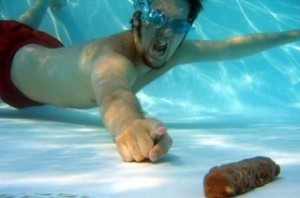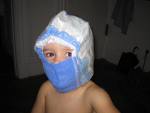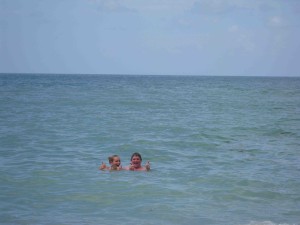The incidence of recreational water-associated outbreaks in the United States has significantly increased, driven, at least in part, by outbreaks both caused by Cryptosporidium and associated with treated recreational water venues.
 Because of the parasite’s extreme chlorine tolerance, transmission can occur even in well-maintained treated recreational water venues (e.g. pools) and a focal cryptosporidiosis outbreak can evolve into a community-wide outbreak associated with multiple recreational water venues and settings (e.g. childcare facilities).
Because of the parasite’s extreme chlorine tolerance, transmission can occur even in well-maintained treated recreational water venues (e.g. pools) and a focal cryptosporidiosis outbreak can evolve into a community-wide outbreak associated with multiple recreational water venues and settings (e.g. childcare facilities).
In August 2004 in Auglaize County, Ohio, multiple cryptosporidiosis cases were identified and anecdotally linked to pool A. Within 5 days of the first case being reported, pool A was hyperchlorinated to achieve 99·9% Cryptosporidium inactivition. A case-control study was launched to epidemiologically ascertain the outbreak source 11 days later. A total of 150 confirmed and probable cases were identified; the temporal distribution of illness onset was peaked, indicating a point-source exposure. Cryptosporidiosis was significantly associated with swimming in pool A (matched odds ratio 121·7, 95% confidence interval 27·4–∞) but not with another venue or setting.
The findings of this investigation suggest that proactive implementation of control measures, when increased Cryptosporidium transmission is detected but before an outbreak source is epidemiologically ascertained, might prevent a focal cryptosporidiosis outbreak from evolving into a community-wide outbreak.
Preventing community-wide transmission of Cryptosporidium: a proactive public health response to a swimming pool-associated outbreak – Auglaize County, Ohio, USA
Epidemiology and Infection / Volume 143 / Issue 16 / December 2015, pp 3459-3467










